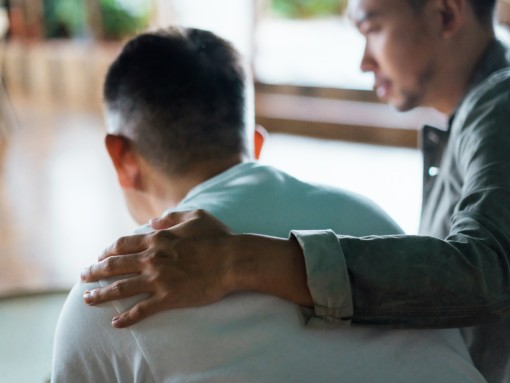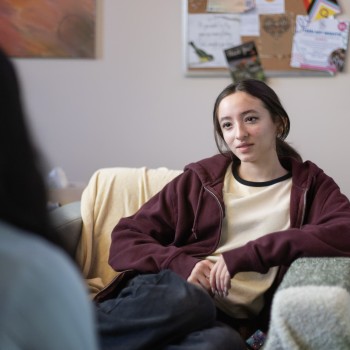A lot of what we hear about young people using drugs seems scary. And with so much information out there about the overdose crisis, it’s easy to feel overwhelmed about everything that’s going on. Wanting to protect the children and young people around you is a natural response—but how can you do that effectively?
Talking with young people openly and honestly about substance use is a great way to start. Here are a few ways you can learn, connect and support.
Did You Know?
According to the most recent BC Adolescent Health Survey, about 16% of high school students in BC said they had tried using a substance other than alcohol, marijuana or tobacco. That’s compared to 44% who had tried alcohol and 25% who had tried marijuana. About 18% of youth had tried smoking tobacco, while about 21% had tried vaping. These numbers have been decreasing over time, with fewer young people trying drugs or using them frequently.
Stay Connected
Open, non-judgmental conversations are one of the most important ways we can protect kids from harm—not only from the risks of substance use, but also from other things that may be impacting them, like stress or other life challenges.
To start with, talk with the young people in your life about what’s going on with them in general—ask honest questions about their interests and how they’re feeling, and engage with their responses. If you start by building a positive relationship where young people feel they can speak honestly with you, it may help make difficult conversations easier.
Starting a conversation about substance use might seem hard, but there are different techniques and approaches you can try. If an opportunity comes up to talk about substance use, such as a news story or social media post you’ve seen, ask how they feel or what they think about it. Make sure they know you’re asking from a place of love and genuine concern, and try to be open and non-judgmental about their answers.
Stay Informed
Learning more about substances from reliable sources can help you talk with young people with confidence and accuracy. It’s impossible to know what’s in a drug purchased from an illegal source. Organic drugs like marijuana and mushrooms are unlikely to be cut with toxic substances, while substances such as heroin, fentanyl, cocaine or methamphetamine are more likely to be contaminated. Sites like DanceSafe and British Columbia's Centre on Substance Use's drug checking reports can help you learn more.
Offer Support
There are resources to support youth and families in BC. HelpStartsHere.gov.bc.ca can help you find supports for young people and parents. There are also programs for families such as Parents Like Us (online resource) and peer support through organizations like FamilySmart and FoundryBC. Knowing what resources are available means you’ll be able to access them when you need to—or you could even do some research together.
Resources
Showing 4 Resources
Foundry Centres
Offers health and social services for young people to access mental health care, substance use services, youth and family peer supports, primary care, and social services. Services are provided together in a single place to make it easier for young people to find the care, connection and support they need.
Centres provide safe, non-judgmental care, information and resources in a youth-friendly space and work to reach young people earlier - before health challenges become problematic.
Multiple Locations
Kelty Mental Health Resource Centre
Provides mental health and substance use information, resources and help with navigating the mental health system for families throughout BC and the Yukon.
Parent peer support workers are also available to support parents and caregivers by phone, virtual meeting, e-mail or in-person. See website for online resources, educational events and webinars.
4555 Heather Street, Vancouver, BC
FamilySmart
Free programs that help B.C. families and caregivers who are parenting children and youth facing mental health challenges.
Youthspace
Offers an online support network to support youth and young adults in crisis. Volunteers offer risk assessment, emotional support, referrals to community resources, and help with creating safety plans. The network includes chat, text and a youth resource directory. Email counselling with a professional youth counsellor is also available.

Stay Safer
If you or someone you know uses drugs, it’s more important than ever to know the ways to stay safer.

The Difference Between Legalization and Decriminalization
Get informed about BC's new policy to decriminalize people who use drugs and how it impacts you.
